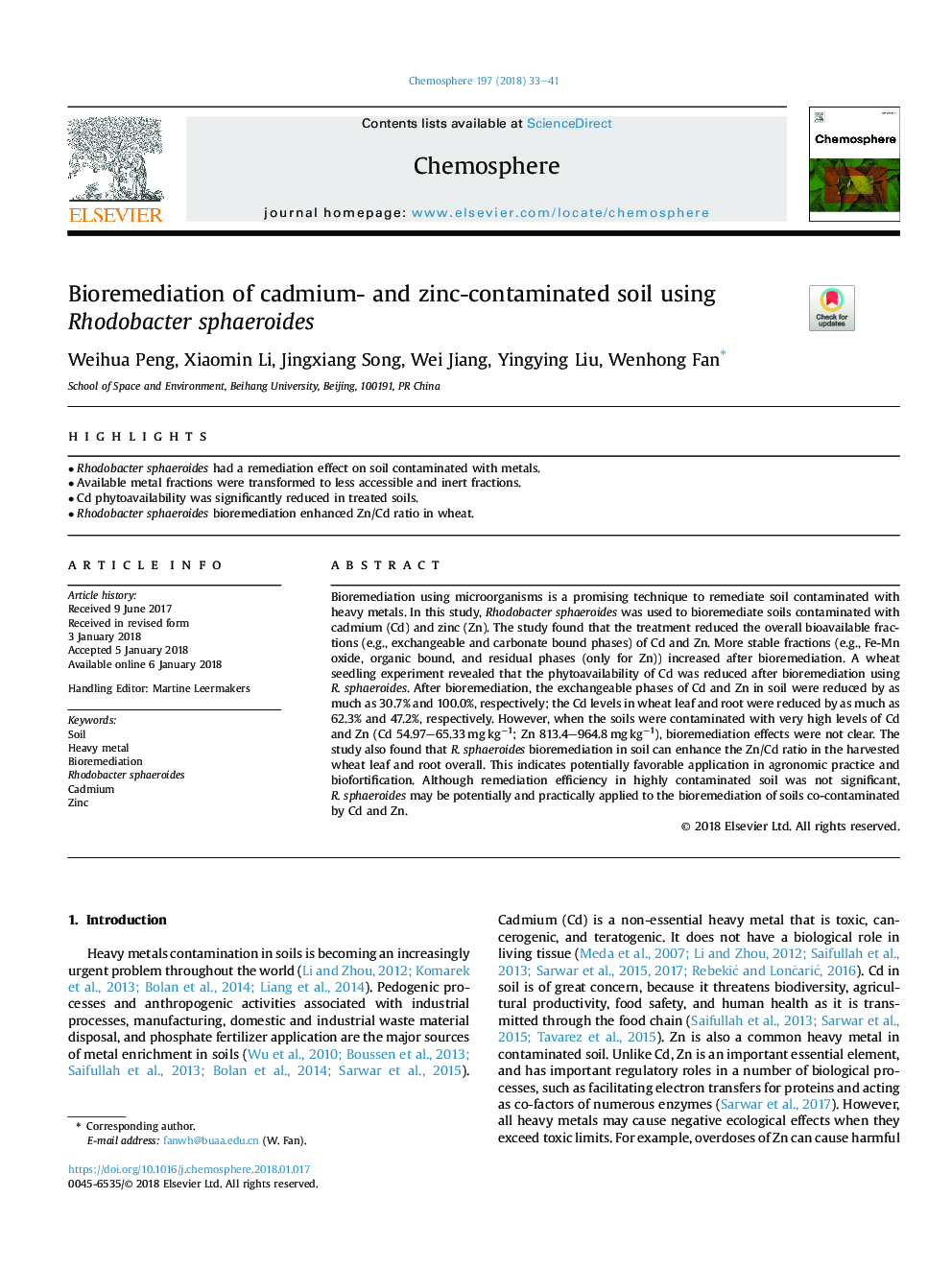| کد مقاله | کد نشریه | سال انتشار | مقاله انگلیسی | نسخه تمام متن |
|---|---|---|---|---|
| 8852060 | 1618774 | 2018 | 9 صفحه PDF | دانلود رایگان |
عنوان انگلیسی مقاله ISI
Bioremediation of cadmium- and zinc-contaminated soil using Rhodobacter sphaeroides
ترجمه فارسی عنوان
خاک ورزی با استفاده از روده بکارک اسکنریدس خاک آلوده به کادمیوم و روی
دانلود مقاله + سفارش ترجمه
دانلود مقاله ISI انگلیسی
رایگان برای ایرانیان
کلمات کلیدی
موضوعات مرتبط
علوم زیستی و بیوفناوری
علوم محیط زیست
شیمی زیست محیطی
چکیده انگلیسی
Bioremediation using microorganisms is a promising technique to remediate soil contaminated with heavy metals. In this study, Rhodobacter sphaeroides was used to bioremediate soils contaminated with cadmium (Cd) and zinc (Zn). The study found that the treatment reduced the overall bioavailable fractions (e.g., exchangeable and carbonate bound phases) of Cd and Zn. More stable fractions (e.g., Fe-Mn oxide, organic bound, and residual phases (only for Zn)) increased after bioremediation. A wheat seedling experiment revealed that the phytoavailability of Cd was reduced after bioremediation using R. sphaeroides. After bioremediation, the exchangeable phases of Cd and Zn in soil were reduced by as much as 30.7% and 100.0%, respectively; the Cd levels in wheat leaf and root were reduced by as much as 62.3% and 47.2%, respectively. However, when the soils were contaminated with very high levels of Cd and Zn (Cd 54.97-65.33â¯mgâ¯kgâ1; Zn 813.4-964.8â¯mgâ¯kgâ1), bioremediation effects were not clear. The study also found that R. sphaeroides bioremediation in soil can enhance the Zn/Cd ratio in the harvested wheat leaf and root overall. This indicates potentially favorable application in agronomic practice and biofortification. Although remediation efficiency in highly contaminated soil was not significant, R. sphaeroides may be potentially and practically applied to the bioremediation of soils co-contaminated by Cd and Zn.
ناشر
Database: Elsevier - ScienceDirect (ساینس دایرکت)
Journal: Chemosphere - Volume 197, April 2018, Pages 33-41
Journal: Chemosphere - Volume 197, April 2018, Pages 33-41
نویسندگان
Weihua Peng, Xiaomin Li, Jingxiang Song, Wei Jiang, Yingying Liu, Wenhong Fan,
